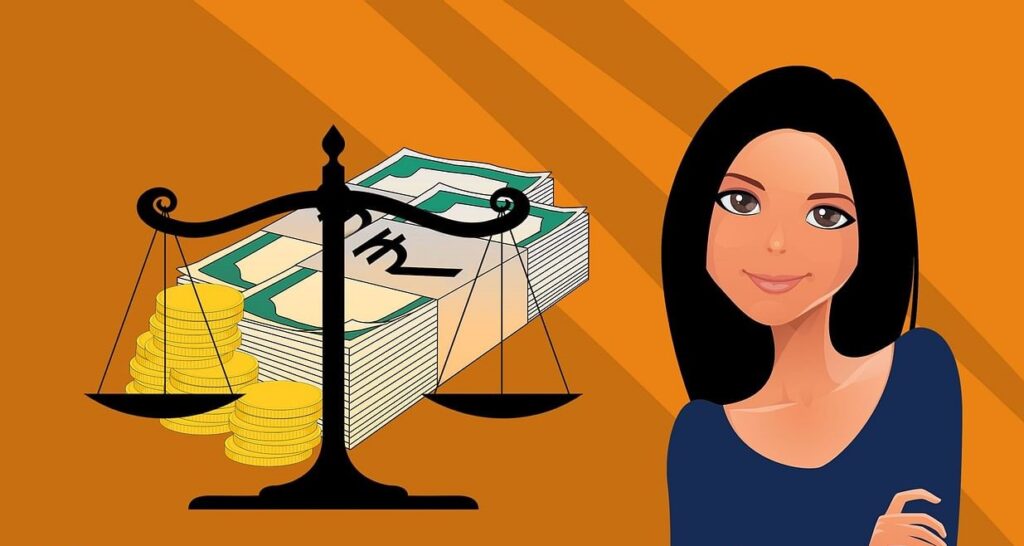Can Major Hindu Unmarried Daughter Claim Maintenance?

Analysis of Abhilasha v. Parkash (2020)
A historic judgement was given by a three-Judge Bench of the Supreme Court in the case of Abhilasha v. Parkash. The Supreme court held that an unmarried daughter who has attained majority and is not suffering from any physical or mental abnormality can still be entitled to claim maintenance under section 20(3) of the Hindu Adoption and Maintenance Act, 1956.
Table of Contents:
- Introduction
- Facts of the Case
- Appellant’s Contentions
- Respondent’s Contentions
- Issues
- Judgement
- Conclusion
Facts of the Case
In the instant case, the mother of the appellant filed an application of maintenance for herself and on behalf of her two sons and one daughter against her husband Parkash for maintaining her and their three children under section 125 of the Criminal Procedure Code (hereafter referred to as CrPC). But the maintenance petition of only daughter was allowed by the learned judiciary magistrate first class till she attains majority. Aggrieved from this, all four filed a criminal revision before the Sessions court, but adding to their sadness, the same was dismissed by the Additional Sessions Judge. The Additional Sessions Judge held that as per Section 125 of CrPC, children who have attained majority are entitled to maintenance only when because of some physical or mental conditions or injury the child cannot maintain himself or herself. Then only in this scenario, a child who has attained the majority can be allowed maintenance.
Again, an appeal was filed under section 482 of CrPC (Saving of inherent powers of High Court) in High Court by all applicants where the decision of Additional Sessions Judge was upheld. Aggrieved from the order, an appeal to Supreme Court was filed by the appellant named Abhilasha.
Appellant’s Contentions
Ms. Makhija, the counsel of the appellant argued that, though the appellant is major, as she is unmarried, she is entitled to claim maintenance from her father. The learned senior counsel further contends that High Court committed an error by dismissing the application filed under section 482 of CrPC of the appellant on the wrong premise that as the appellant has attained majority and is not suffering from any physical or mental abnormality she is not entitled to any maintenance.
The counsel relied on section 20 of the Hindu Adoption and Maintenance Act, 1956. Section 20 of the said 1956 Act, deals with the maintenance of children and aged parents. It states that a person is under an obligation to maintain his or her unmarried daughter till she is unable to maintain herself out of her own or any other property. Thus, as the appellant is still unmarried, she will come under the purview of the said section and is therefore entitled to maintenance from her father.
In support of the appellant’s contentions, her counsel relied on the judgement of this court in Jagdish Jugtawat v. Manju Lata and Others. Ms. Makhija contends the High Court has committed an error by taking a contrary view to the above-given judgment of the High Court. As the appellant is still unemployed, she is entitled to claim maintenance from her father.
Respondent’s Contentions
The Respondent’s counsel contended that the courts below are correct in providing maintenance to the appellant only till she attains majority. The counsel submitted that under section 125 of CrPC a daughter who has attained majority is entitled to maintenance only if she is suffering from any physical or mental abnormality and thus is unable to maintain herself. The Revision Court has returned a finding that in the instant case, the appellant nowhere has any physical or mental abnormality or injury. Thus, the dismissal of the appellant’s application under section 482 CrPC by the High Court is correct since no case was made out to interfere in orders passed by the Judicial Magistrate and learned Revisional Court in the exercise of jurisdiction under section 482 of CrPC.
Issues
- Whether appellant who is a major and unmarried and is not suffering from any kind of physical or mental condition or injury, is still entitled to receive any maintenance from her father under section 125 Of CrPC.?
- Whether the order passed by the Judicial Magistrate and the Revisional Court limiting the appellant’s claim until she attains majority deserves to be set aside with a direction to the respondent to continue to give maintenance until she is married?
Judgement
Coram: Ashok Bhushan, R. Subhash Reddy, M.R. Shah
While deciding the instant case, the Hon’ble Supreme Court while dealing in the matter in detail compared to section 125 of CrPC and section 20 of Hindu Adoption and Maintenance Act, 1956. The Court stated that ‘maintenance’ as contemplated under the 1956 Act is a larger concept as compared to the concept of maintenance under section 125 of CrPC.
Section 125 CrPC provides maintenance to an unmarried daughter even after attaining majority, if she is due to the reason of any physical or mental abnormality or injury not able to maintain herself.
Thus, the purpose of section 125 is to provide immediate relief to an applicant in a summary proceeding. A daughter who is major and is unmarried and is not suffering from any of the above-listed abnormalities is not entitled to any maintenance from her father under CrPC.
Hence, to claim maintenance under section 125 CrPC following grounds must be met:
- The daughter must be unmarried;
- She should not have any means to maintain herself;
- She must be suffering from physical, mental abnormality or injury.
The grounds are not met by the appellant in the instant case, thus she is not entitled to claim maintenance under section 125 CrPC from her father.
Whereas section 20 of the Hindu Adoption and Maintenance Act, 1956 recognizes the principles of Hindu Law regarding the maintenance of children and aged parents. It puts a statutory obligation on a Hindu to maintain his or her daughter, though major but is not married and is also unable to maintain herself out of her earnings or other property. But for the enforcement of such right, the application should be made under section 20 of the 1956 Act.
An unmarried daughter is thus entitled to claim maintenance even after attaining majority, provided she proves that she is unable to maintain herself.
Thus, the right of a daughter to claim maintenance under section 20 of the 1956 Act is absolute. It is a right given to her under the personal laws, which can be enforced by her against her father.
The maintenance application was filed under section 125 CrPC before Judicial Magistrate First Class. Hence, when a maintenance application is filed under section 125 CrPC, the Magistrate cannot exercise the jurisdiction of section 20(3) of the 1956 Act. Thus, the contention of the appellant that the court below should have accepted her maintenance petition even though she was a major is not accepted. They have made no infirmity in deciding the case as it was not in its jurisdiction.
Though the appellant’s maintenance application under section 125 of CrPC was dismissed, she has been given liberty to take recourse to section 20(3) of the 1956 Act to claim maintenance.
Conclusion
The Judgement in the case of Abhilasha v. Parkash has given liberty to unmarried daughters who have though attained majority is unable to maintain herself can now claim maintenance under section 20 of the Hindu Adoption and Maintenance Act, 1956.
Though the applicant’s maintenance got rejected under Section 125 CrPC, she has been given liberty to approach under section 20(3) of Hindu Adoption and Maintenance Act, 1956 for claiming maintenance. But the advantage of this forward-looking judgement can only be availed by Hindus.
Whereas, women from other religions have the recourse of section 125 of CrPC which has a narrower scope of application.

